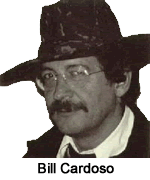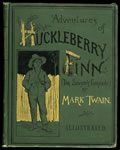 |
Writing is Torture
September 30, 2017
 "Writing is torture," Bill Cardoso stated, squarely and categorically, in response to my now forgotten question. We chummed around a bit for a summer or two in the early '80's, and one day in Peter G.'s apartment in Inman Square I had asked him something about his writing. I wish I could remember exactly the question, but I often remember the answer as I attempt to write a readable blog.
"Writing is torture," Bill Cardoso stated, squarely and categorically, in response to my now forgotten question. We chummed around a bit for a summer or two in the early '80's, and one day in Peter G.'s apartment in Inman Square I had asked him something about his writing. I wish I could remember exactly the question, but I often remember the answer as I attempt to write a readable blog.
I began this blog to find a literary voice that is tenable in a society whose vernacular language is in a sorry state. First, I want to fight with verbal usage against the deterioration of grammar, logic, and critical thinking. It's difficult. For example, I began by foolishly eschewing contractions entirely, because I think they're abused and overused. However, my reactionary stridency rendered my writing stilted. No one says or writes, "I cannot make the eleven o'clock meeting." It's "can't" every time. Few people even write "eleven" or "o'clock" anymore. It's a problem of navigation between clear, grammatical sentences and what is flowing and natural in current registers of diction.
Second, I've learned that content is still more important than the form that I fuss over. (Oh, now I've ended a sentence with a preposition and stumbled over my first difficulty.) Not only must a narrative be cogent, but it must be engaging, and I learned a bit about what garners engagement when I read Mark Twain's obituary in the New York Times. The first epithet used for him in the article is "humorist," in the phrase "the humorist's biographer." I never would have thought that the first word anyone would  use to label him would be "humorist." Thus, I infer that to write well might often require leading a reader to mirth or at least some peaceful thoughts at some point. use to label him would be "humorist." Thus, I infer that to write well might often require leading a reader to mirth or at least some peaceful thoughts at some point.
Which inference leads me to my third quagmire. I have a abundance of rage, and I'm afraid my explicatory writing easily turns into rants. I am ever battling to calm down my words, to slow down my segues, and to follow my favorite example of how to allow a reader to reach one's own conclusions about a topic. With my first reading of The Adventures of Huckleberry Finn, when I got to the part where Huck says to himself, "All right, then, I'll GO to hell," meaning he'd help Jim escape, I thought I had discovered a moment of moral birth. Only on my second reading years later did I realize that Clemens had masterfully set me up for my ostensibly personal discovery. One must tell the tale with patience and with trust of the reader.
The best writing comprises a coherent and comfortable path to an undeniable conclusion.
|
|